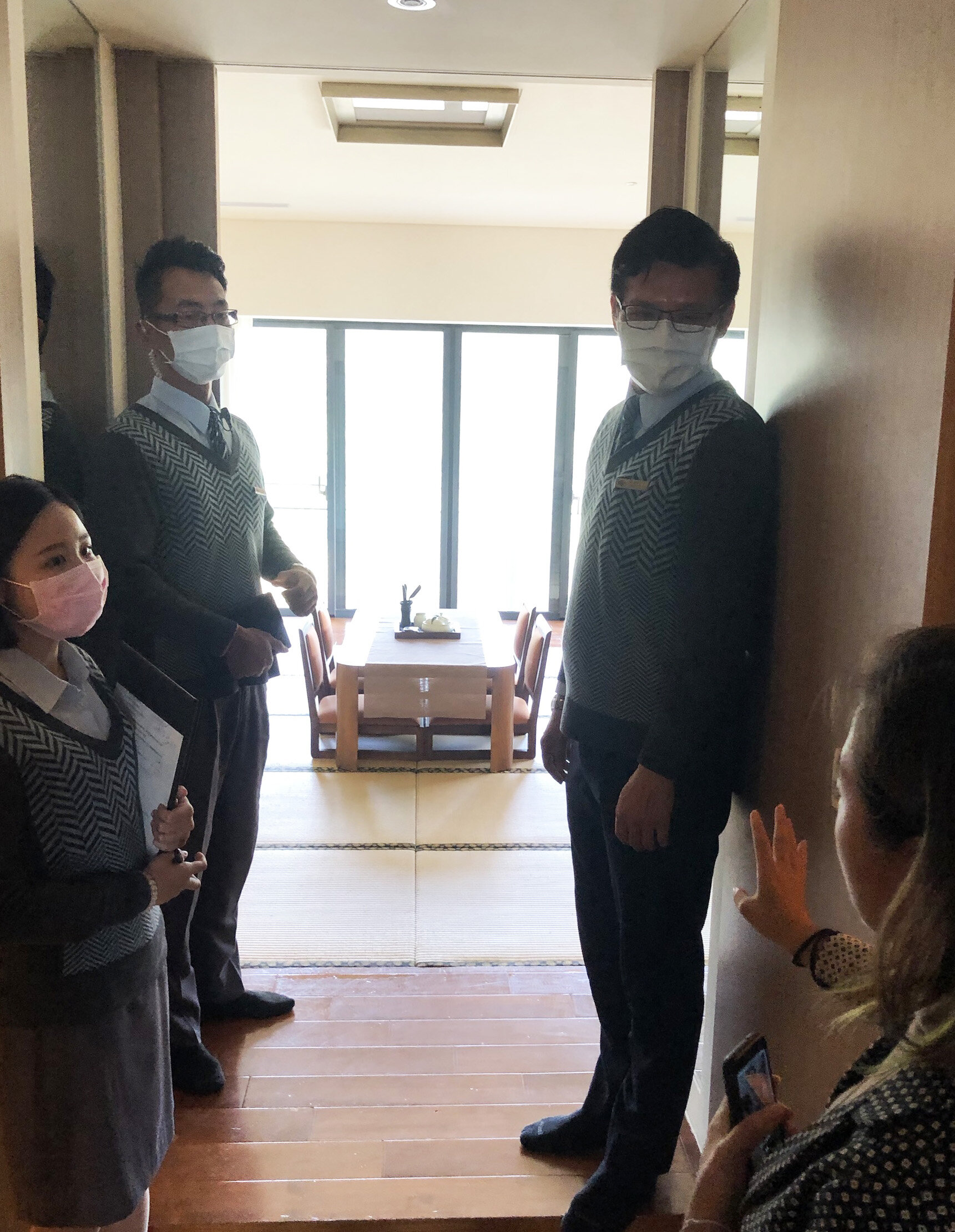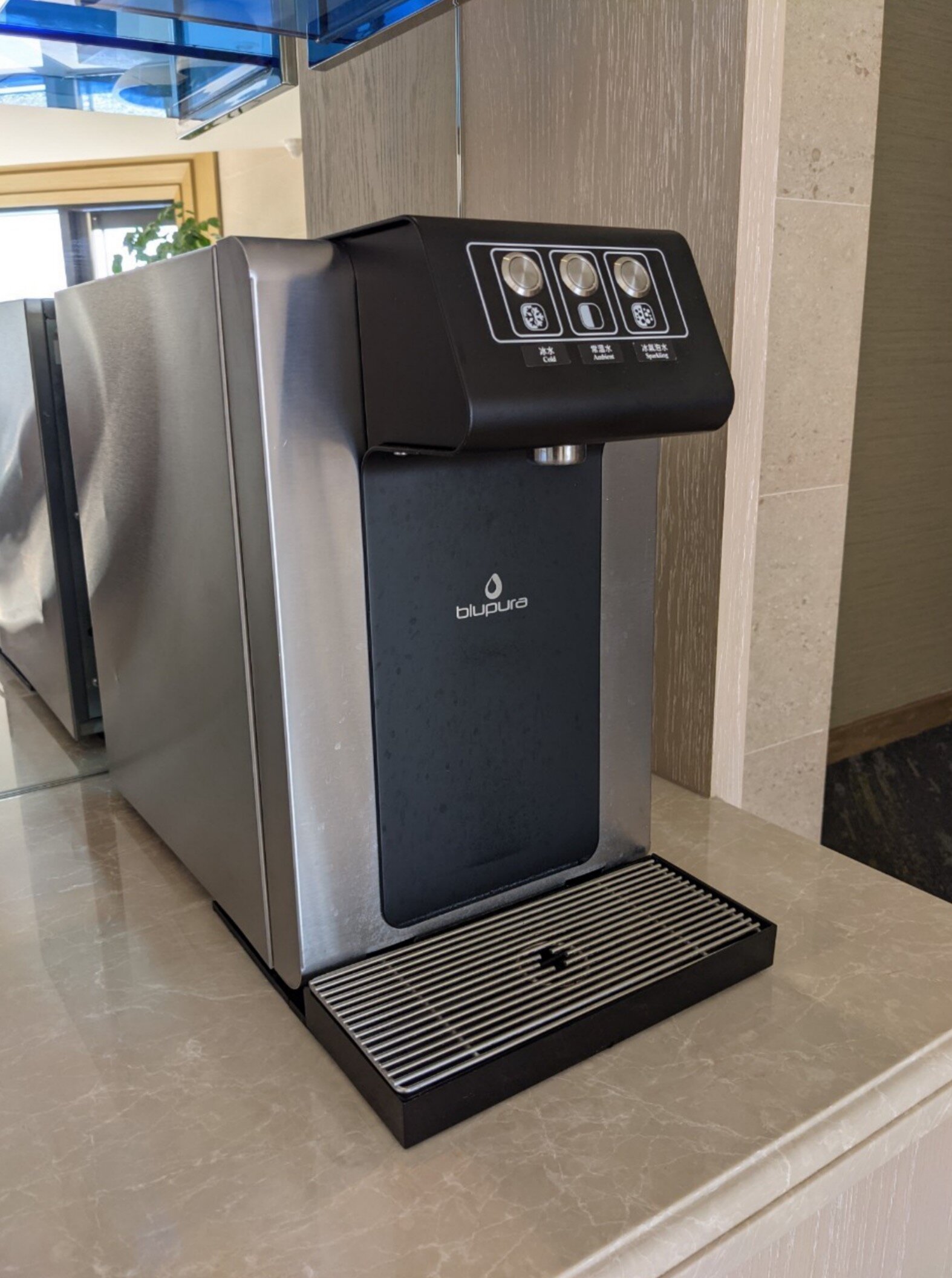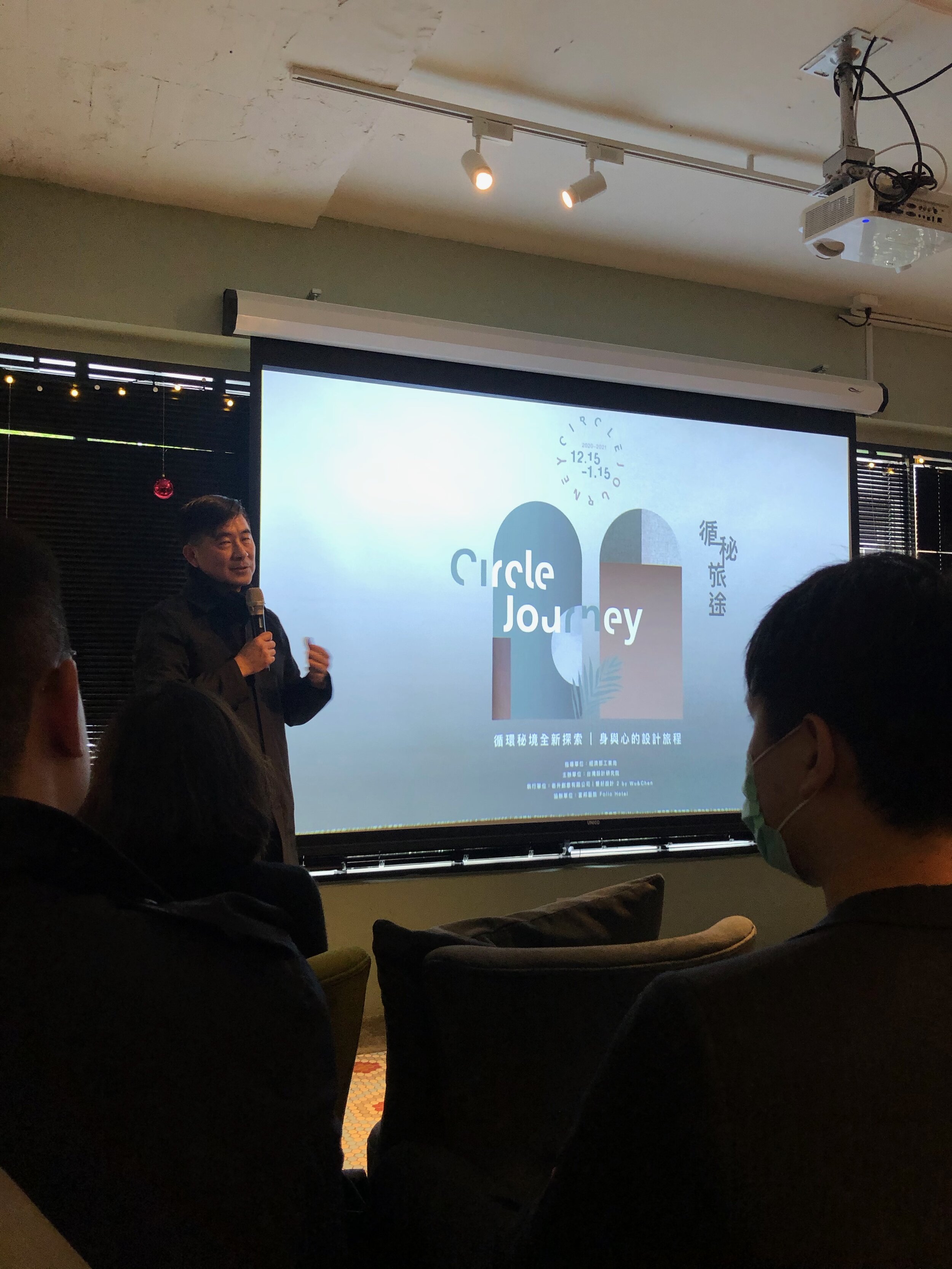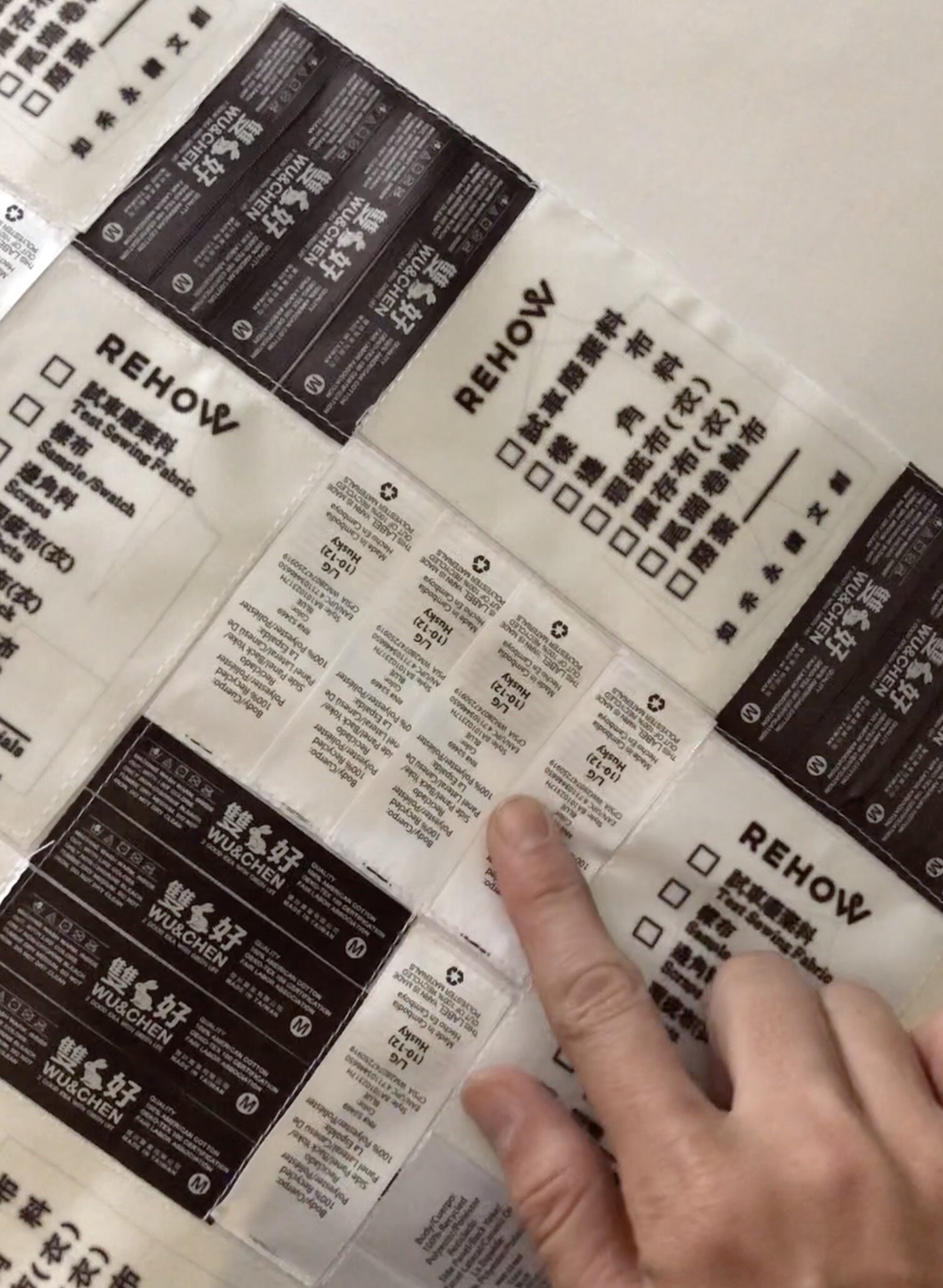Lagging behind trends for Eco-Hotels: Why the Taiwanese need to do better?
By Jodie Ka Ho
Fleur de Chine Hotel in Taiwan provides service to replace disposable plastic water bottles with environmental-friendly glass bottles.
When you go traveling, besides the attractions and sites we need to find a place to rest our heads at night. Surveys conducted by the popular booking website TripAdvisor showed that a significant number of respondents were actively looking to make eco-friendly choices when booking rooms for their holidays and a significant number of those respondents said they would pay extra if it meant they were harming the planet less [1]. And there is nothing to suggest that these trends aren’t going to continue to climb.
Eco-Hotel
So what makes hotels so un-environmentally-friendly? Like much of the sustainability issue, it’s a numbers game. Too much, too often, and too fast. If you were to do a quick internet search of the sustainability literature related to hotels, the three main themes for environmental consideration are water usage, waste production, and energy use. Additionally, if you were to have a quick look at some hotels that are considered the most environmentally sound, [2] you would quickly find that many of them have four letters in common, LEED. It stands for Leadership in Energy and Environmental Design and “is the most widely used green building rating system in the world. Available for virtually all building types, LEED provides a framework for healthy, highly efficient, and cost-saving green buildings. LEED certification is a globally recognized symbol of sustainability achievement and leadership.” [3]
This means that it's best to consider the environmental sustainability of a hotel before it is built. LEED aims to create innovative and high-performing buildings that are naturally going to be more efficient through good design and careful consideration.
This seems like common sense, and more new buildings, in general, should have to legally compile with stricter and smarter building standards, but what then if we have an already existing hotel? Well, the main environmental considerations are the same, water, waste, and energy. There are tons of great ideas and innovations out there giving us great options to choose from. So how would a hotel know how to successfully take on a challenge like sustainability? Well, many hotels and businesses-alike often out-source this to professionals, the main one being the International Organisation of Standardization which was founded under the notion of finding out “what's the best way of doing this?” In terms of hotel sustainability, an article published on their website, ISO Newsroom, broke down how the Hiltons hotels were accomplishing this through the ISO programs. The three programs the Hilton used to encompass the majority of hotel operations are ISO 14001 (environment management), ISO 50001 (energy management), and ISO 9000 (quality management). Those are the ISO ‘families’ which all have a multitude of even more specific standards within them.
When it comes to any of the three main themes (water, energy, waste), what it boils down to is a cyclical process of measuring, reporting, learning, and improving. This means conducting a critical environmental impact assessment of sorts, nothing should be left out. This would provide a framework to regularly be on the lookout and proactive in the ways to improve, and not all solutions are equal. To give some examples, retrofitting all existing bathrooms with more efficient toilets, taps and showerheads could be a technical solution to greatly reduce the estimated 30% of water usage in a typical hotel [4]. Creative solutions are taken up but some hotels targeted at another sector which consumes a lot of water is landscaping and laundry, such as nature-based solutions or green infrastructures and reduced room servicing. Similar to technical solutions aimed at water usage reduction are motion sensors for lights or retrofitting old light fixtures with more efficient LED lights. Hotel waste might be the theme whose solution could be the most creative. When talking about waste, there are several forms that are commonly forgotten or just not considered in that category. Material waste is easier to assess as they are in a physical which has to be regularly removed from the hotel premises, but what about things like light pollution, chemical waste, and organic waste (from the kitchens and landscaping).
HUEMON’s Perspective
At HUEMON Design, we are currently working on a project which hopefully can look to the material waste stream of hotels. We have begun by discussing the waste streams of hotels. As designers, we need material to build with. With a circular economy mindset, we look to see what ‘waste’ can be our source materials. In order to see what is available to us, we first have to understand the waste streams created by a typical hotel’s operations. What part of the operation is the waste being generated? What material is it? How much of it is there? What is currently being sourced from outside the hotel, which this material could replace? And so on. This is why measuring and reporting the going-ons of a hotel are important. Without such information, designers are virtually stuck in connecting the dots. Although closing the loop is not yet always feasible in terms of both complying with local regulations and financial feasibility. But the next best step might be to close a more regional loop, by collaborating and partnering with local producers and manufacturers for inputs to the hotel and a multitude of services provided for the waste generated by a hotel. So along with the designs for better products, we then need to think about what cannot be used and to make strides to reduce or cut all together material streams in hotel operations that cannot fit into a more circular economy. All this without reducing the comfort and quality of experience for the guests. This is arguably the most important concern for any hotel manager. Which a designer can understand, right? Form and functions. Most environmentalists would also agree, that if we can make it easy for more people to be more green, why not?




Cumulative change
There is no silver bullet to fixing climate change, and most of the world unfortunately just doesn't care about the environment, maybe because they aren’t aware of the information, or they have issues that are more pressing to them, or it's not convenient for them to make an active change in behaviour and mindset. This is where hotels are in a unique and interesting position to a) touch the lives of individuals who are most responsible for leading carbon-intensive lifestyles, and b) probably interact the most with the majority of the world through global tourism. Therefore, this means that a hotel’s communication of the sustainability message is really important. Why don’t guests get single-use plastic water bottles anymore? Why are hotels no longer offering “free” toiletry anymore? Why don't guests have crisp new sheets every time they enter their room? Are just some of the notions that hotels will need to work on changing the general expectation of the hotel experience in a way that retains comfort.
When discussing sustainability, the phrase “hotel mentality” is sometimes used to describe the mentality of those particular guests that have the notion that since it’s temporary and they don’t own it then it's not their responsibility to care for that environment. When interviewing employees at a 5-star hotel, they suggested a similar notion when trying to get their guests to engage with the small first steps taken by the hotel. Guests were uninterested and felt it wasn’t their business to have to understand what the hotel was doing for the environment. Hotels must therefore develop the discussion with their guests in a way that is interesting and even worthwhile for the guest. Bombarding guests with complex jargon when they just want to relax is not going to be an effective way to communicate those invisible investments made on the part of the hotel. At the same time, the hotel must be making enough of those investments to actually be making a difference. The last thing that’s needed is more businesses preaching about sustainability when all they really have done is not to provide plastic water bottles in every room.
Efforts from Taiwan
So what is Taiwan doing about all of this? The Taiwanese Environmental Protection Administration (EPA) claims here that Taiwan has more “green” hotels than Japan or the United States. [5] A hotel can be awarded a bronze, silver, or gold award and the honor of displaying their Green Mark (环境标签 huánjìng biāoqiān) on their website. How can there be so many hotels that have managed to acquire the Gold Award? Well upon further research it is easily explained due to the standards set by the EPA. There is almost no similarity to the standard set by the ISO. The EPA’s complacencies in these matters have a damaging effect on these businesses. As it does not foster the mentality to strive for and delegitimize the honour of obtaining recognition for the business’ management and success in environmental sustainability. In this way, if hotels only choose to comply with EPA standards that quite frankly have no significance, then Taiwanese hotels are surely to lag further and further behind our more creative and innovative counterparts.
—————————————
1. Martín, H., 2014. More Hotels Are Going Green, And Not Just To Save Water Or Money. [online] Los Angeles Times. Available at: <https://www.latimes.com/business/la-fi-hotel-drought-20141114-story.html> [Accessed 29 December 2020].
2. Johnson, D., 2016. 10 Green Hotels And Resorts Enhancing Sustainability In Creative Ways | Smart Meetings. [online] Smart Meetings. Available at: <https://www.smartmeetings.com/magazine_article/green-hotels-and-resorts-enhancing-sustainability-in-creative-ways> [Accessed 29 December 2020].
3. Usgbc.org. n.d. Why LEED Certification | U.S. Green Building Council. [online] Available at: <https://www.usgbc.org/leed/why-leed> [Accessed 29 December 2020].
4. Martín, H., 2014. More Hotels Are Going Green, And Not Just To Save Water Or Money. [online] Los Angeles Times. Available at: <https://www.latimes.com/business/la-fi-hotel-drought-20141114-story.html> [Accessed 29 December 2020].
5. Greenliving Information Platform. 2019. Green Hotels All Over Taiwan: Go Green And Enjoy Discounts During Environment Season!. [online] Available at: <https://greenliving.epa.gov.tw/newPublic/Eng/News/Contents/45382> [Accessed 30 December 2020].



